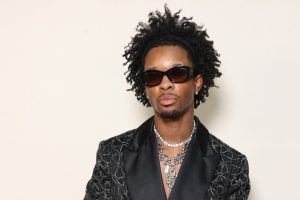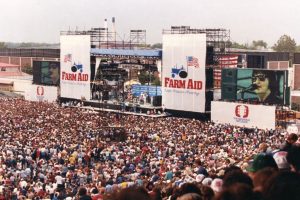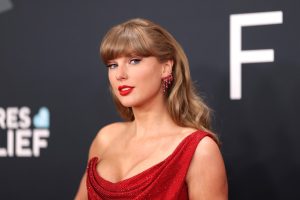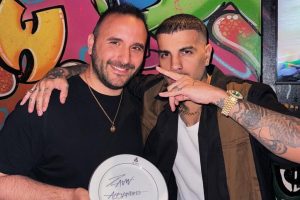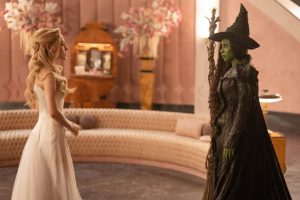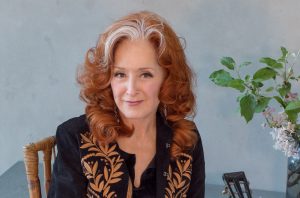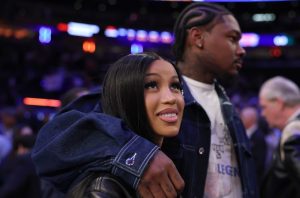Willie Nelson’s Farm Aid is unlike any other festival. It has always been about more than the music. Launched by Nelson and fellow musicians in 1985 to respond to the economic crisis that was devastating family farmers and their communities, Farm Aid this year marks its 40th anniversary as music’s longest running concert for a cause. This year’s Farm Aid takes place Saturday (Sept. 20) at Huntington Bank Stadium in Minneapolis with a bill headlined by Farm Aid’s guiding board members—Nelson, John Mellencamp, Neil Young, Dave Matthews and Margo Price—along with Kenny Chesney, Billy Strings, Nathaniel Rateliff & the Night Sweats, Lukas Nelson, Trampled by Turtles, Wynonna Judd, Steve Earle, Waxahatchee, Eric Burton of Black Pumas, Jesse Wells, Madeline Edwards and the Wisdom Indian Dancers. Like all the artists who have appeared at Farm Aid before them, these performers will donate their time, expenses and fees to help the family farmers who feed the nation. Farm Aid fans know that, once a year, Nelson and friends have taken to stages across the country for a high-profile show to benefit America’s independent family farmers. What they may not realize, even after 40 years, is that Farm Aid has helped influence a profound shift in the cultural landscape of the country. The organization deserves credit for promoting many of the most important changes in food culture in the United States: the growth of farmers’ markets, the spread of farm-to-table restaurants, and the rise of sustainable farming methods that are helping to address climate change. Through the years, with days of sessions preceding the concert itself, Farm Aid has evolved as an impassioned annual gathering for activists involved in environmental, racial and social justice issues, as well as farming. “It’s the combination of the music and the message that is so important,” Farm Aid’s former executive director Carolyn Mugar once said. “What happens at a Farm Aid concert opens up people’s hearts.” Farm Aid, of course, is part of a great chain of musicians leveraging their songs for society — from the singers who joined Martin Luther King Jr. for the March on Washington in 1963, to Pete Seeger’s pass-the-basket concerts in the late 1960s to launch the Hudson River Sloop Clearwater, to George Harrison’s Concerts for Bangladesh at Madison Square Garden in 1971, to Bob Geldof’s Live Aid mega benefit for Africa famine relief in1985, to the poverty-fighting Global Citizen Festival launched in 2012, to the FireAid benefits earlier this year, and countless other initiatives through the decades. Musicians have often offered their talents to meet the needs of the moment— and then moved on. The focus and longevity of Farm Aid is unique. What also sets Farm Aid apart is the inclusive, charitable and tough spirit of founder Willie Nelson. “Farming was my first job,” he once told Billboard. “I picked cotton. I pulled corn. I knew firsthand what it meant to farm. I knew damn well how tough it was. My farm roots are deep-seated in the soil of my personal story.” And in his small hometown of Abbott, Texas, where he attended the United Methodist Church, Nelson recalled, “we had a collection box, and even though we were struggling financially, I knew there were folks with far greater struggles. As part of a loving community, I was taught the moral responsibility of helping those in need.” Farm Aid’s guiding board members “are just like farmers, they never give up,” Mugar has said. “They’re stubborn, they’re clever, they’re strategic and it’s because of them that this organization has been effective.” So this look back at 40 great moments from 40 years of Farm Aid is about more than just the music. Drawn from Farm Aid’s own timeline and Billboard’s many years of coverage of the festival, this list highlights not just great onstage moments, but also the activism, the artist voices — and the joy of late summer tomatoes from an urban farm. Find it all below. Dylan Speaks, Willie Listens, Farm Aid Launches Image Credit: Paul Natkin/WireImage On July 13, 1985, at the Live Aid benefit for African famine relief at JFK Stadium in Philadelphia, Bob Dylan took the stage for a late-evening acoustic set with Keith Richards and Ronnie Wood of the Rolling Stones. In an offhand remark, Dylan said, “I hope that some of the money that’s raised for the people in Africa, maybe they can just take a little bit of it — maybe one or two million, maybe — and use it, say, to pay the mortgages on some of the farms that the farmers here owe to the banks?” Willie Nelson later recalled to Billboard, “The question hit me like a ton of bricks.” With the impossibly short lead time of six weeks, Nelson staged the first all-star Farm Aid concert in Champaign, Ill., on Sept. 22, 1985. Willie, Neil and John Image Credit: Getty Images The first Farm Aid concert in 1985 played to 80,000 fans and featured an all-star bill including Dylan, Billy Joel, Bonnie Raitt, B.B. King, Loretta Lynn, Roy Orbison, Johnny Cash, Waylon Jennings, Tom Petty — and Neil Young and John Mellencamp. Young and Mellencamp would team up with Nelson as the core of the Farm Aid board to help guide the organization for the next four decades. The first concert raised $7 million, and Nelson wrote the first check on the Farm Aid account to the National Council of Churches in the amount of $100,000 for food pantries, to help feed farm families in seven states. Mellencamp Joins Missouri Blockade Image Credit: Courtesy of Farm Aid In one of numerous offstage actions taken through the years by Farm Aid’s musicians in support of family farmers, John Mellencamp joined leaders of the Missouri Rural Crisis Center and 14,000 farmers on May 7, 1986, to blockade a U.S. Department of Agriculture Farmers Home Administration Office in Chillicothe, Mo,. to protest unfair lending practices. Farm Aid Goes on the Road Image Credit: Peter Bischoff/Getty Images Across the 40 years of


